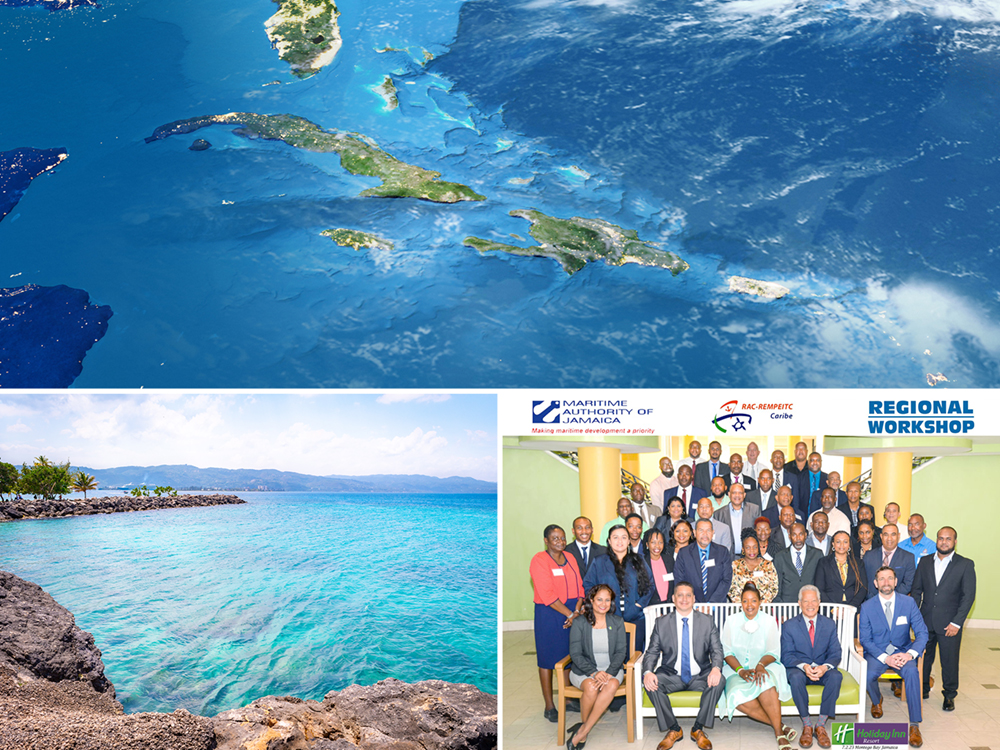The challenges for Small Island Developing States (SIDS) of the Wider Caribbean Region in meeting their obligations for adequate port reception facilities (PRFs) under The International Convention for the Prevention of Pollution from Ships (MARPOL) was the focus of a Regional workshop on MARPOL Annexes III-V, including PRFs held in Jamaica (7-9 February).
Through presentations and group discussions across the three-day event in Montego Bay, participants gained a better understanding and in-depth knowledge of matters pertaining to the implementation and enforcement of Annexes III-V of MARPOL.
In her opening remarks delivered remotely from IMO Headquarters in London, Helen Buni from IMO’s Marine Environment Division noted that full implementation and enforcement of MARPOL remains a problem in the Caribbean region, as it does elsewhere around the world.
“IMO’s Audits have shown persistent problems with MARPOL implementation, which often result from gaps in the national legislation or unclear attribution of responsibilities to the different ministries and authorities involved,” she said, adding, “We can all learn from each other. And IMO is ready to support this process.”
The limited capacity of many States in the region to properly process waste streams generated on their islands was emphasized by participants. This highlighted a related lack of capability to process additional waste offloaded from vessels calling at their ports.
The workshop was delivered through IMO's Integrated Technical Cooperation Programme (ITCP) by the Regional Marine Pollution Emergency, Information and Training Centre - Caribe (RAC/REMPEITC-Caribe). Additional expertise was supplied by the United States Coast Guard (USCG) supported by the Maritime Authority of Jamaica.
The event was part of IMO's efforts to support Caribbean SIDS in addressing the identified "root causes" hampering proper implementation of the MARPOL Convention. The 2023 World Maritime theme is ‘MARPOL at 50 – Our commitment goes on'.
The Regional Marine Pollution Emergency, Information and Training Centre – Caribe (RAC/REMPEITC-Caribe) is one of four Regional Activity Centres of the Caribbean Environment Program (UNEP-CAR/RCU). Established in 1995, RAC/REMPEITC-Caribe is hosted by the Government of Curaçao and staffed with subject matter experts voluntarily seconded by states signatory to the Cartagena Convention of 1983.
Activities are largely funded by IMO, UNEP and the United Nations Development Program (UNDP).
